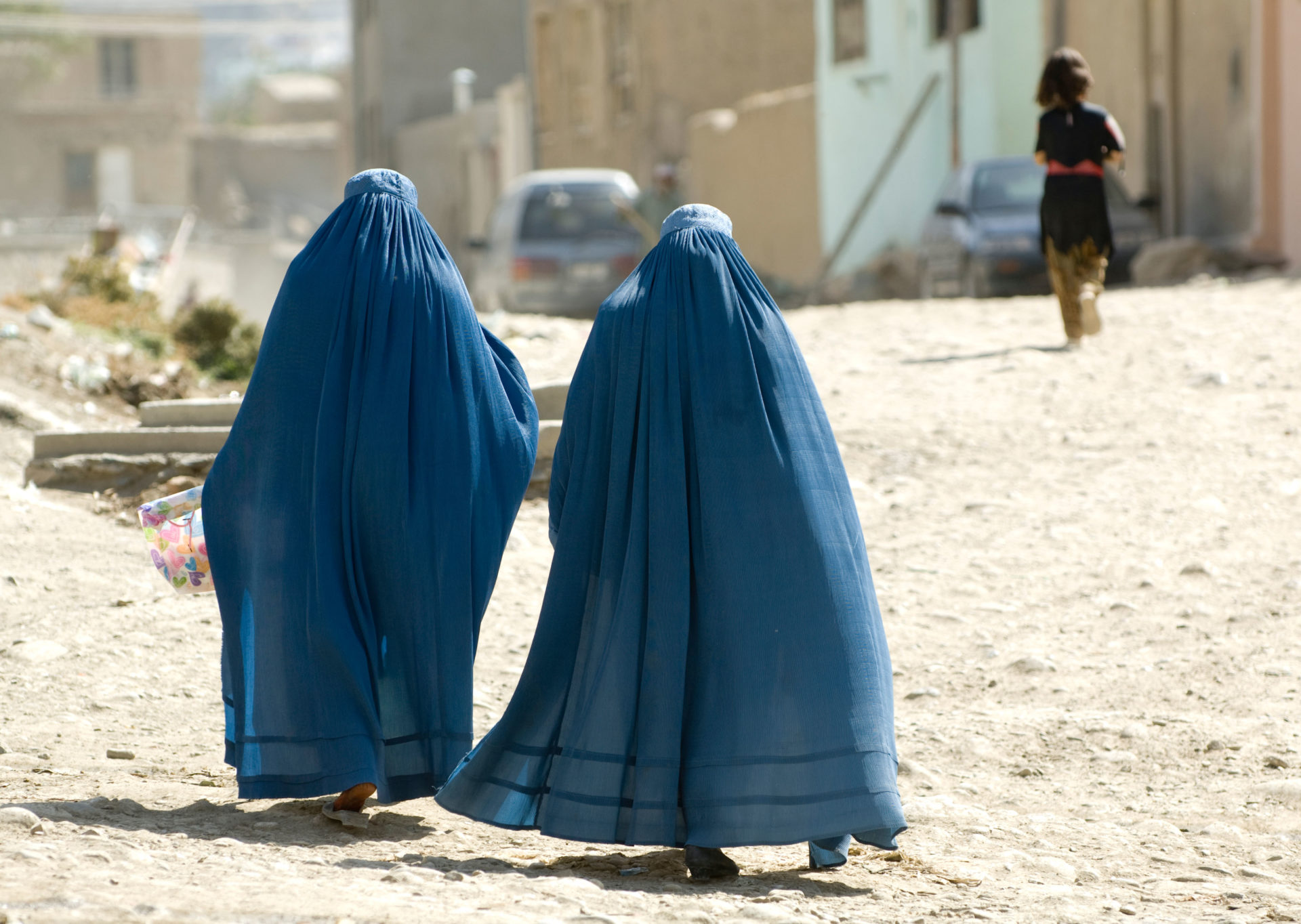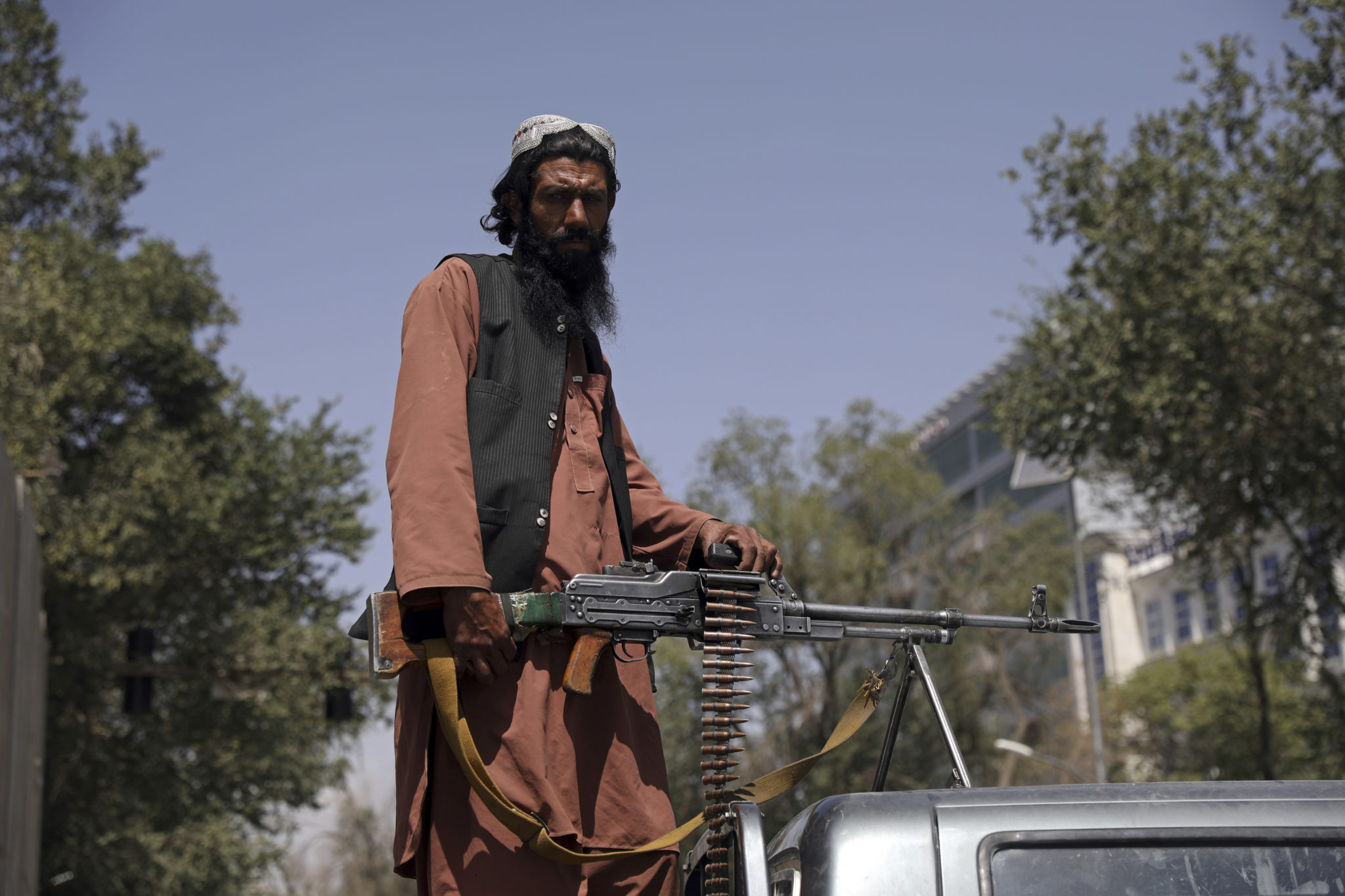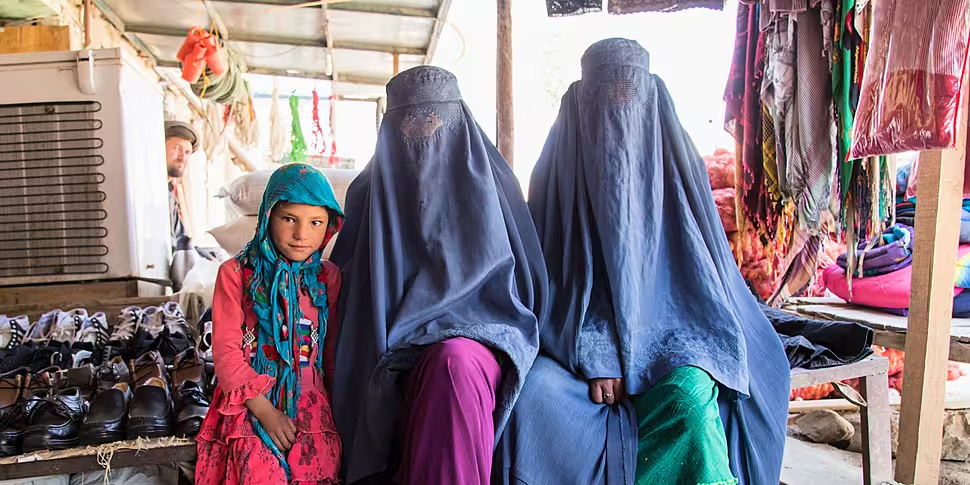Women in Afghanistan have been “abandoned by the international community”, an Afghan woman in Ireland has argued.
In the three years since the Taliban returned to power, women in the country have been banned from attending school, working or even travelling without a male relative.
Last week alone, it was announced it was mandatory for women to wear a burqa in public and they can no longer read or sing in public.
Speaking to Newstalk Breakfast, Afghan lawyer Mahbooba Faiz said the situation continues to deteriorate.
“They have issued more than 80 edicts and, unfortunately, 54 of those decrees have been imposed on the rights and freedoms of women,” she said.
“The women who are witnessing the gender apartheid system at the moment, they are trying to hold protests against the regime.
“But unfortunately, these women are being abducted and put in prison.”
 Women in burkas in Kabul. Picture by: Alamy.com
Women in burkas in Kabul. Picture by: Alamy.comFollowing 9/11, the Taliban were toppled by the US-led invasion of Afghanistan, who then swept away many of the country’s laws that discriminated against women.
Between 2001 and 2021, Afghanistan remained a dangerous warzone - but for the country’s women, it meant many had an opportunity to finally get an education and develop a career.
“I have always said, I was born in war and I was raised in war,” Ms Faiz said.
“I always say to my son that you should be grateful for the peace; you are experiencing growing up here in Ireland because when I was growing up in Afghanistan, there was no peace.
“Afghanistan is the only country in the world where women are not allowed to get an education.
“Women are not allowed to work, they have been deprived of their basic rights.”
 A Taliban fighter stands guard at the main gate leading to the Afghan presidential palace in Kabul, Afghanistan, 16-08-2021. Image: Rahmat Gul/AP/Press Association Images.
A Taliban fighter stands guard at the main gate leading to the Afghan presidential palace in Kabul, Afghanistan, 16-08-2021. Image: Rahmat Gul/AP/Press Association Images.When the Taliban returned to power, western nations broke off diplomatic relations with the country.
Three years on and diplomats from America, Britain, France and Germany have yet to return to the country - even though the country continues to suffer from acute food insecurity.
It has all led to a sense among many Afghans that the world does not care about the misery they are enduring.
“Women have been abandoned by the international community,” she said.
“I know there are a lot of severe issues in the world at the moment - especially with the war in Gaza and Ukraine.
“But we are urging the international community not to forget Afghan women, not to turn their back on Afghan women.”
Legal recognition
Amnesty International has backed calls for the Taliban’s oppression of women to be classed as ‘gender apartheid’ under international law.
It is a campaign Ms Faiz is backing on the grounds that the situation in Afghanistan is “way [more] severe” than the discrimination faced by women in other countries.
“There is a global campaign launched by a group of women’s rights activists,” she said.
“So, when I learned about that campaign, I thought it was a good opportunity to raise awareness and speak out about the plight of Afghan women through this campaign.
“Basically, the campaign aims to get gender apartheid recognised and codified in international law.”
A Taliban spokesman said western concern about Afghan women's rights are an "expression of arrogance".
Main image: Women wearing burkas in a market in Afghanistan. Picture by: Alamy.com









